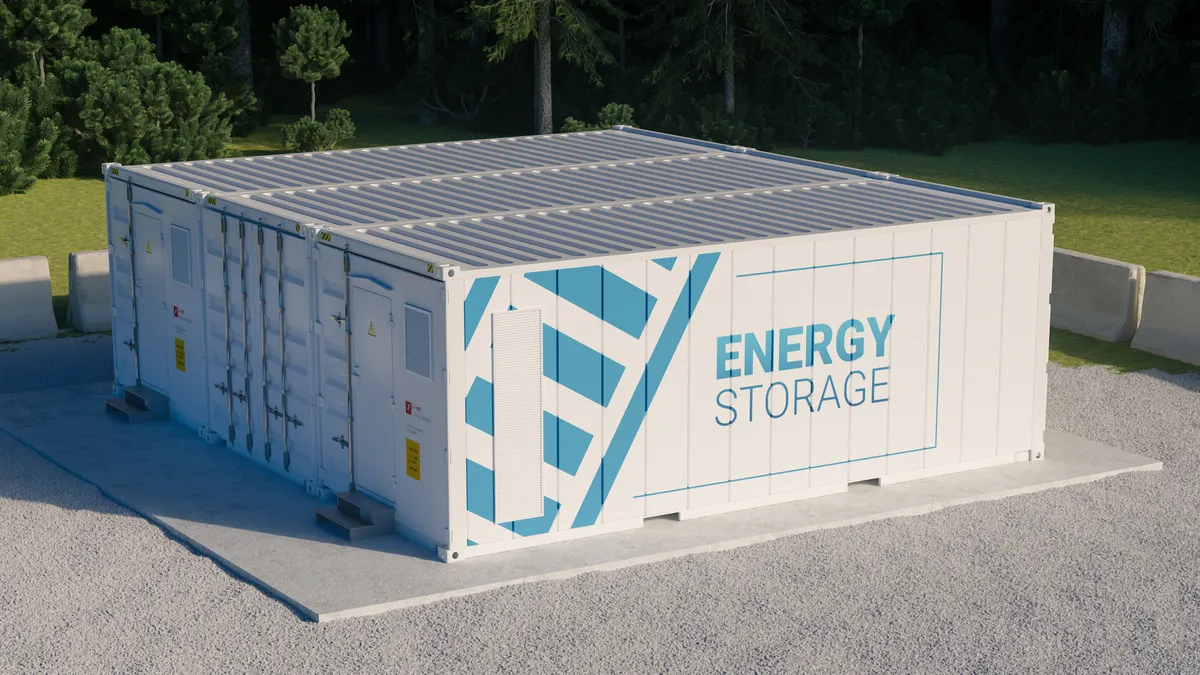Dive Brief:
- An energy storage technology developed with backing from the Department of Energy (DOE) could reduce charging time to a matter of minutes compared to lithium-ion batteries, according to research published in the journal Advanced Functional Materials.
- The research, led by Tulane University assistant professor Michael Naguib, is focused on novel materials for electrochemical energy storage devices. The new materials, using ionic liquids, can combine the energy density of lithium-ion batteries with the rapid power charging of supercapacitors.
- Naguib said the technology could be especially important as the electricity grid transitions to intermittent renewable energy generation. "If you can store a high amount of energy quickly, it’s a huge advantage because you can get more in a windy night than you would with a traditional battery," Naguib said.
Dive Insight:
Lithium-ion batteries are the dominant form of energy storage for utilities, representing 85% of newly installed storage capacity globally, according to a 2020 report from Navigant Research. However, those batteries have some drawbacks, including safety concerns when they are exposed to high temperatures and their relatively slow charging time because of the material that stores and dispatches ions.
Boosting that charging time is seen as a key breakthrough, especially for electric vehicles (EVs). Allowing for fast charging of EVs could reduce range anxiety by allowing drivers to recharge with a short roadside stop. However, the high currents that could allow for faster charging can reduce energy efficiency and reduce battery power.
The Tulane research — funded by DOE’s Energy Frontier Research Center — centers on MXenes, two-dimensional conductive materials that can store ions between their layers and discharge them. Naguib’s team worked on MXenes at the nanoscale to develop new techniques to optimize the space between those layers, allowing for larger ions to get in. That, Naguib said, can help "bridge the gap" between the rapid charging advantages of supercapacitors, or aqueous electrochemical capacitors, with the density of lithium-ion batteries.
The advances in storage can hold benefits for electric vehicles and other portable electronic devices that need to be charged regularly, but Naguib said they should also boost grid reliability and accelerate the transition away from fossil fuels.
"With renewables, we need to store as much as possible when there is high supply and then send it back when there is high demand," he said. "If there’s a surge in supply or demand, you have to be able to adapt quickly and either charge or dispatch that energy very quickly. Right now, if you’re depending on lithium-ion batteries, recalling it quickly can be a challenge."
Researchers are eyeing a number of technology opportunities to improve battery performance for both stationary and mobile applications. While cost remains the top concern, a recent paper from researchers at the National Renewable Energy Laboratory said that discharge efficiency — or how much energy is lost in charging and discharge — is also a key factor to be considered for storage technology.
One much-watched technology is the solid-state battery, known as the "Holy Grail" of storage for its combination of density and safety. A number of startups and auto manufacturers have advanced solid state batteries with new materials and cost reductions, although its use remains limited.
The Tulane technology has not been piloted in the real world, but has been licensed to Japanese company Murata, which is also producing solid-state batteries.













